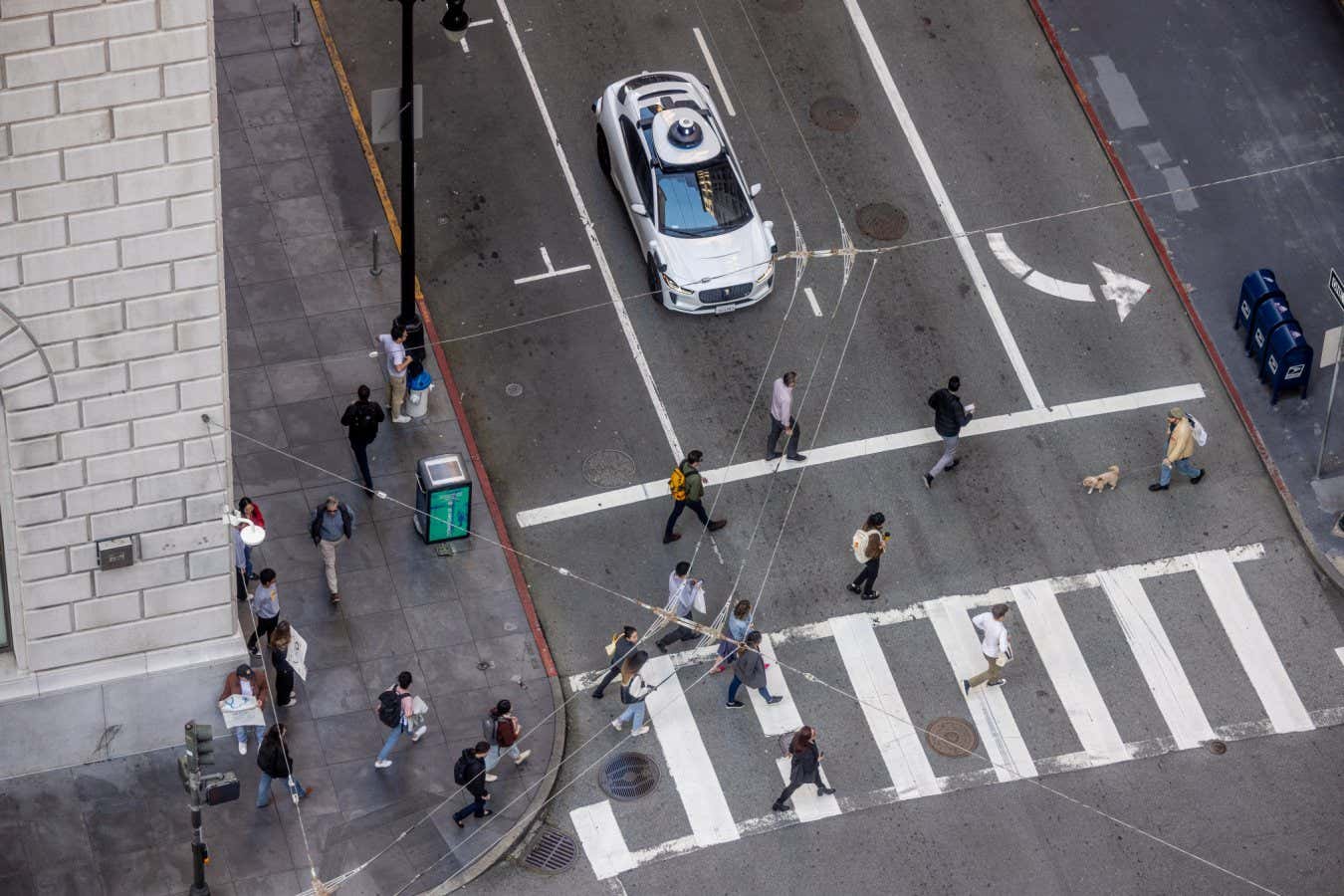Driverless cars seem to have fewer accidents than human drivers under routine conditions, but higher crash risks when turning or in dim light – although researchers say more accident data is necessary
By Jeremy Hsu
18 June 2024
A self-driving car in downtown San Francisco
Jason Doiy Photography/Getty Images
One of the largest accident studies yet suggests self-driving cars may be safer than human drivers in routine circumstances – but it also shows the technology struggles more than humans during low-light conditions and when performing turns.
The findings come at a time when autonomous vehicles are already driving in several US cities. The GM-owned company Cruise is trying to restart driverless car testing after a pedestrian-dragging incident in March led California to suspend its operating permit. Meanwhile, Google spin-off Waymo has been gradually expanding robotaxi operations in Austin, Los Angeles, Phoenix and San Francisco.
“It is important to improve the safety of autonomous vehicles under dawn and dusk or turning conditions,” says Shengxuan Ding at the University of Central Florida. “Key strategies include enhancing weather and lighting sensors and effectively integrating sensor data.”
Advertisement
Read more
How this moment for AI will change society forever (and how it won't)
Ding and his colleague Mohamed Abdel-Aty, also at the University of Central Florida, pulled together data on 2100 accidents from California and the National Highway Traffic Safety Administration (NHTSA) involving vehicles equipped with some level of automated self-driving or driver assistance technologies. They also gathered data on more than 35,000 accidents involving unassisted human drivers.
Next, they used a statistical matching method to find pairs of accidents that occurred under similar circumstances, with shared factors such as road conditions, weather, time of day and whether the incident took place at an intersection or on a straight road. They focused this matching analysis on 548 self-driving car crashes reported in California – excluding less automated vehicles that only have driver assistance systems.
